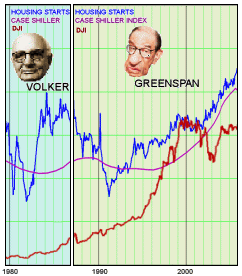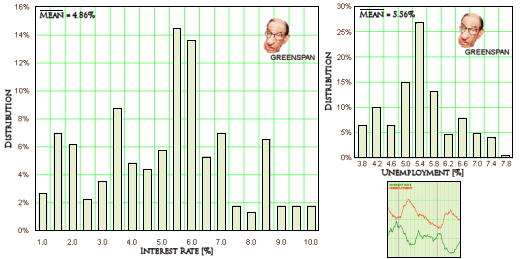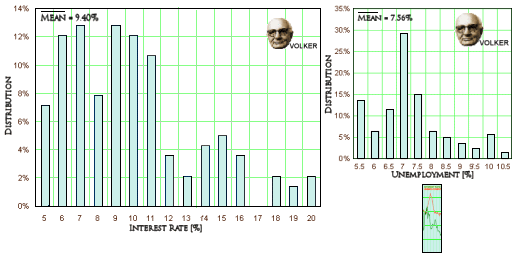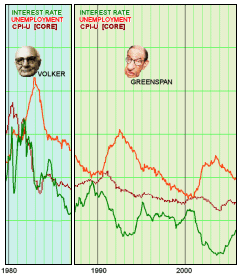 We grew up hearing the Aesop fable of the grasshopper and the ant, we children of parents who’d lived through the Great Depression. The grasshopper spent the summer playing his violin and enjoying the good life while the ants toiled
We grew up hearing the Aesop fable of the grasshopper and the ant, we children of parents who’d lived through the Great Depression. The grasshopper spent the summer playing his violin and enjoying the good life while the ants toiled  tirelessly storing up food for the winter. Ah, but come winter, the grasshopper got his comeupance and was going door to door begging for food. While it made a good story and a good point, it wasn’t the complete picture. The victims of the Great Depression weren’t ne’er-do-wells who hadn’t planned for the future. They were people who didn’t have the resources for such perspecacous saving. And that’s true in the Great Recession, perhaps to a lesser extent, but true enough.
tirelessly storing up food for the winter. Ah, but come winter, the grasshopper got his comeupance and was going door to door begging for food. While it made a good story and a good point, it wasn’t the complete picture. The victims of the Great Depression weren’t ne’er-do-wells who hadn’t planned for the future. They were people who didn’t have the resources for such perspecacous saving. And that’s true in the Great Recession, perhaps to a lesser extent, but true enough.
I think one reason I’m so obsessed with the tenure of Alan Greenspan is that, to me, he was an active force on the grasshopper side of the equation. I’ve harped on his keeping Interest Rates low from 1995 through 2000 and basically enabling the Stock Market Bubble, the DotCom Bubble, the Over-Building, and the Housing Bubble. Likewise, his active [vigorous] intervention in Brooksley Born’s attempts to regulate Derivatives fanned the flames of Wall Street’s "Irrational Exuberance." He claims he never saw the crash coming and falls back on his old Ayn Rand faith that the Market is self correcting in explaining what happened. But that doesn’t seem right to me, so I keep hacking away at things. I think another reason for my persistence is that I thought he was a Wizard too, just like the rest of the country. I never really knew what he was saying, but thought that was because I was not initiated into the right fraternity [I now think he was a master of obfuscation].
Certainly, the tenure of Alan Greenspan felt real good. Here’s a comparison of the DOW, Home Values, and Housing Starts between the tenure of Paul Volcker [1979-1986] and Alan Greenspan [1987-2005]:

During Greenspan’s era, it seemed like things just went right. There were two Recessions in the 18 years – lightweights compared to the 10.7% Unemployment Volcker had to deal with. Inflation, the major threat during Volcker’s time was flat during Greenspan’s reign [or at least the Inflation measured by the CPI-U (Consumer Price Index)]. The Construction Industry went great guns. The Stock Market tripled. Our Houses doubled in value, providing ready access to "free money" by refinancing and withdrawing equity, and there were big profits to be made by selling out. I personally did all those things to my advantage. What wasn’t there to like about the Greenspan years?
The answer should’ve been obvious – money was way too easy! In defending himself, Greenspan claims to have misread the business community – thinking they wouldn’t crash the system – like there’s some great morality that binds them. But what he doesn’t address is the question of whether he abused his power at the Fed to specifically promote a constituency on Wall Street. I’m sure he would deny that, explaining his stance on Derivatives and keeping rates low during a critical five years on some contemporary parameters. So I thought I’d look at his overall performance rather than at the details. Was he keeping the economy safe or was he a participant in letting it run wild? Here are frequency distributions of Monthly Interest Rates and Monthly Unemployment for Paul Volcker and Alan Greenspan for comparison:


Admittedly, Volcker’s high Interest Rates early in his tenure were part of a war on Inflation [a war he won]. But aside from that, he was able to deal with a record breaking Unemployment and still kept Interest Rates in the moderate range [>5%]. Greenspan, however, averaged a bit under 5%, and dropped Interest Rates to record lows whenever Unemployment started to rise.

This next graph seal’s Greenspan’s fate from where I sit. It’s the amount of time Interest Rates were below a certain level. For 3/4 the time, he was below 6%. For 1/2 the time, he was below 5%. And for 1/5 the time, he was below 3%. Greenspan was actively keeping Interest Rates low! No question about that fact at all…

-
He was using his control over the Interest Rates to promote the interests of the business community, of Wall Street. If that’s the case, he was a traitor.
-
He was a "feel good" doctor rather than a financier. In that case, he was a grasshopper .
-
He actually believed the Ayn Rand malarky he spouted that the Markets could do anything and would self-correct. In that case, he was a fool.
-
All of the above. In which case, he was a foolish, traitorous, grasshopper.
-
Banks: The Fed Interest Rates effect Bank Interest Rates. Banks traditionally make their income from loans. Low Interest means decreased revenue, forcing them into the investment mode, lowering lending standards, higher volume loaning eg selling loans off, etc.
-
Construction: Builders build when money is easy [low interest construction loans]. Thus the unending escalation of Housing Starts.
-
Home Buyers: Easy money and easy qualification makes it a sellers market and house values rise [inflate].
-
Stock Market: With low interestcomes low yields on savings, forcing people into the Market looking for growth.
-
Asset Bubbles: All of these things come together in the train of easily financed asset bubbles that marched through the economy like hurricanes rolling in from Africa in September.
-
Debt: Easy money leads to easy debt and leveraging – something that happened everywhere.
-
The Great Recession of 2008: To summarize.
 And so on and so on. The Greenspan years felt good while they lasted, but when the binge was over, it’s hard to say it was even slightly worth it except for the few who were able to get out in the nick of time – eg sell houses before the bust, escape the job market before the fall, etc. There was absolutely no call for the Federal Reserve to push economic growth like it did. It was a dangerous game from the start, and it backfired. The mandate is for the Fed to keep the economy from going up in smoke, not to throw gasoline on the fire. The Federal Reserve was designed be on the ant’s side of the equation, not the grasshopper’s...
And so on and so on. The Greenspan years felt good while they lasted, but when the binge was over, it’s hard to say it was even slightly worth it except for the few who were able to get out in the nick of time – eg sell houses before the bust, escape the job market before the fall, etc. There was absolutely no call for the Federal Reserve to push economic growth like it did. It was a dangerous game from the start, and it backfired. The mandate is for the Fed to keep the economy from going up in smoke, not to throw gasoline on the fire. The Federal Reserve was designed be on the ant’s side of the equation, not the grasshopper’s...
If you were to watch this video you’d realize that Greenspan was trapped within the parameters of a system whose dynamics neither he nor Volcker understood.
Keen Talk: Why Credit Money Crashes ::
http://www.debtdeflation.com/blogs/2010/10/08/ami-talks-in-flv-format/